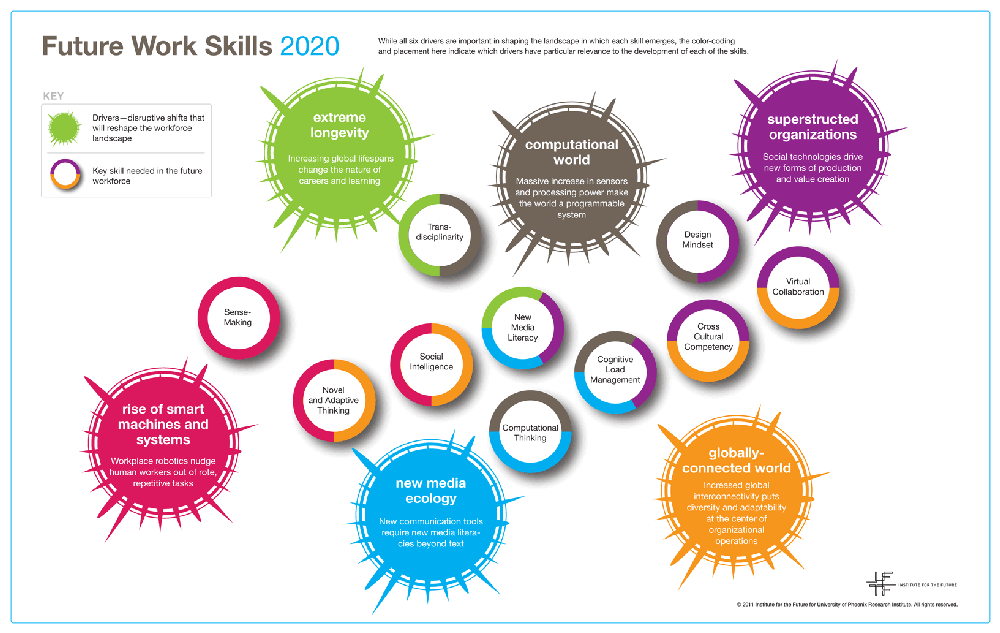February 8, 2021 5 min read
Opinions expressed by Entrepreneur contributors are their own.

By Carolina Arango Castaño, Director of the LATAM Office of the Wadhwani Foundation
To play chess, you have to learn to forget. To be strategic with the new workforce you have to do the same.
In small and medium-sized companies as well as in a game of chess, every move counts and, when economic conditions improve in our countries (by private or public will), more people join the workforce. How can SMEs think of a strategy to increasingly empower their work teams, (as chess players do)?
With each movement of personnel – entrances and exits – in the organizations, the prediction decreases to control the achievements of the teams in the short and medium term ; you have to be constantly reacting, putting out fires and that makes us less productive and unable to execute our growth strategy. A bad move is a lost turn. You waste time, ground, momentum. You run the risk of losing control of the situation and find yourself running. Great chess players and business people are very conservative about what they do. But once they have gained some ground that changes.
Every person in the organization counts. In chess, if you lose a piece and don’t get one on your next turn, it can cost you the game. Businesses are so competitive that you need each employee as an asset to have a competitive advantage. Chess teaches you to make decisions in complex situations and deal with them. It teaches you strategies that are intrinsic, according to the portfolio of products and services, budgets and objective.
Designing these plays with the entry of this new century invites us as entrepreneurs to be more pragmatic, and to make decisions for the organizational transformation that is imminent, not only due to the pressure of digital transformation and automation, but also due to multiculturalism, diversity gender and multi-generation. But this strategy must include not only thinking differently in terms of how we train and educate our employees, but also how we find the right ones to start with. From a success perspective, better diversity leads to better results , as work teams are more creative, have a better connection with customers, and are more skilled communicators.
Image: Via Wadhwani Foundation
You have to forget the previous hiring strategies, (it is complex but functional). Regardless of age, position or time spent with the company, people are always looking for new ways to grow and develop their careers. We can help them focus on their strengths, abilities, and qualities that cannot be replicated by machines, such as communication, empathy, and curiosity.
Looking ahead is key in chess. You need to imagine movements and wait for them to come true. It is vital to react to these movements, and these movements are critical in business. Often, we are stuck in the here and now, trying to understand the 4IR, the millennials, centennials, Generation X, Baby Boomers , when what any collaborator wants is that their leader has a vision of the future, motivates, challenges, him allow to have a life-career balance, have autonomy, coexist between gender equality and job security.
There are new generations, new plans, and entrepreneurs must think about the following movements to come out winners:
1. Let’s foster a culture of feedback . Closeness and constant feedback will always have a fundamental place in the way a company can develop inclusion. By immersing employees in a culture of feedback, they will remain committed to lifelong learning.
2. Let’s stop thinking in terms of hierarchy and promote reverse mentoring . Diversity is the foundation of innovation. To innovate successfully, we must first view diversity as an asset. One way that companies can encourage this in the workplace is through reverse mentoring, where senior leaders can learn specific digital skills from their younger counterparts. This brings generations of employees together and is key to closing the knowledge gap between them.
3. We create employee-centered performance reviews. In our digital age, companies must reassess their performance standards to adapt to the changing needs of their employees. We can no longer stick with the old models that fail to track the nuances of a person’s life cycle. This means creating a work environment in which collaboration and dialogue are valued more than performance ratings. When this happens, we are all motivated to achieve true growth that is based on a future-focused goal.
Checkmate refers to a position on the board in which the King is threatened with imminent capture and there is no possible way to avoid such a threat. Checkmate is always the ultimate goal or goal of a chess game.
In business it is profitability and sustained growth; to make this final move, it is enough to align the sales goals, the teams and the expert support.
The Wadhwani Foundation offers a free program for entrepreneurs who want to take advantage of this expert support to ensure the stabilization of their companies. The Advantage Protect program is worth $ 100,000 per business, at no cost, to selected businesses. To apply to be a beneficiary of the program, you must enter this website . If the companies are selected, the foundation will contact them directly via email to indicate the next steps and start date. Restrictions apply.




